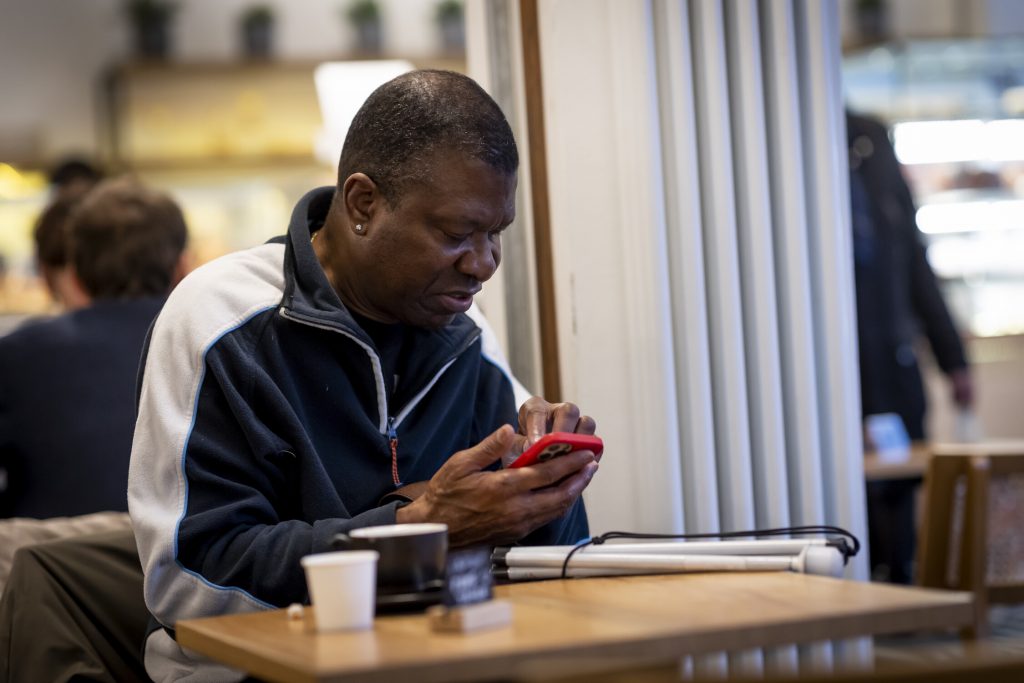Patient perspectives report
Read the full report with detailed analysis of trends across London.
Download the report
The national Digital First programme began in 2019, looking at how access to digital services in primary care (general practice) could be made equitable for all patients. In London, Digital First has focused on improving the adoption of digital tools and encouraging the understanding and improvement of these tools within general practice across the five London Integrated Care System (ICS) regions.
During 2023, the Digital First programme commissioned the Health Innovation Network South London to undertake a patient perspectives project. This project aimed to understand patient awareness and experiences of using digital tools to access primary care in London and how these tools have helped to support healthcare needs.
The three tools project looked at were:
This project started by looking at data already collected (such as surveys from GP surgeries), followed by an online survey and five online focus groups with people from across London. The online survey received 3267 responses, and 33 people took part in focus group discussions. The full report is available to download here and is summarised below.
The most used digital tool was the NHS App, which had been used by 87% of people who completed the survey. 77% of those surveyed had used online forms to provide information about a health concern or condition to their GP, and 76% of patients who contributed to the report had used a GP surgery website in the past.
Summarised below are the key London-wide findings:
Extend the times online forms are available and include clear guidelines on when to expect a response.
The online survey included a small number of questions around communication methods and preferences. Appointment reminders were the most common type of text messages received by respondents. When asked how they would like to be contacted by their GP surgery, SMS (text message) was the preferred option, followed by email and telephone call.
Digital exclusion was a topic raised in both the survey and the focus groups. In the focus groups, patients with disabilities and impairments shared their experiences, and highlighted some of the challenges they faced – such as a patient who was deaf being unable to use phone consultations, and a patient with poor hand mobility being unable to use mobile apps.
Recommendations from the focus groups included training for GP surgery staff on the Accessible Information Standard (AIS) to increase awareness and ensuring compliance with the AIS, which would improve patient experience. Patients also recommended putting flags on patients records to highlight their preferred communications methods.
The London-wide findings showed that most people had used all three digital tools (online forms, the NHS App, GP surgery websites), and were satisfied with them, finding them easy to use. Several benefits of the tools were identified, particularly the convenience of digital access. However, some challenges were also raised, and patients suggested some improvements to help mitigate or improve these issues.
To increase the use of digital tools, it was suggested that more could be done to raise awareness of the tools and their benefits, which would encourage and support more people to use them. Additionally, improving the accessibility of digital tools and providing dedicated support would be particularly helpful for those who may experience barriers to using them. Another barrier that was identified was a lack of clear communication and lack of ability to provide quick feedback to the GP surgery. Having clearer navigation and signposting to GP surgery services would help improve the patient experience of these tools and would reduce the need for patients to contact the practice.
The findings were also explored at a more local level, by looking at the different answers people gave depending on where they live (for more information on this, please see the main report). This helped to give feedback which relevant to each region. By comparing the findings between different ICSs, it was possible to understand where certain things are working well or could be improved.
Read the full report with detailed analysis of trends across London.
Download the reportFind case studies for each of the London ICS regions below: